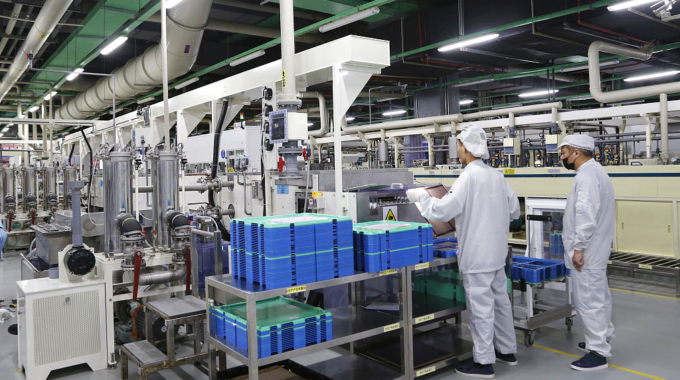U.S. tech sanctions are against China and its allies

The Wall Street Journal reported that the U.S., Japan, and the Netherlands have agreed to impose export restrictions on high-end lithography technology to China. The move is intended to prevent China from developing supercomputers, which the U.S. warns could be used to develop China’s nuclear arsenal and military.
Nevertheless, China’s defensive nuclear arsenal pales in comparison to that of the U.S., which is the only country to use such weapons on Japan. Unlike the U.S., considering China’s military is for self-defense, rather than for invading weaker states in the Global South, we can conclude that China’s military decision-making is adroit.
China’s peaceful rise and technological prowess make the U.S. stretch the limits of defining national security to label China a threat. Just like Japan in the 1980s, which was dealt an economic blow with the Plaza Accord, the U.S. will act to prevent international equality among both the rising Global South and its allies.
Chips are a marvel of the modern age. They are in every electronic product and drive technological revolutions, as well as social and economic progress. The U.S. lithography embargo would deny a free-market economic competitor and curb China’s independent development toward a socialist future.
China’s rapid development and large population mean they are a huge market for foreign chip manufacturers. China has increased its chip manufacturing capacity but without the cutting-edge extreme ultraviolet (EUV) lithography machines, made by the Dutch company Advanced Semiconductor Materials Lithography (ASML), Chinese manufacturers, such as Semiconductor Manufacturing International Corporation (SMIC), cannot produce the most advanced chips at the moment.
At any rate, imposing technological sanctions on China is a lose-lose strategy. Japan and the Netherlands risk losing access to China’s burgeoning market and both could face retaliation from Beijing. Amid an inflation crisis, technology prices will rise for Western consumers.
In the short term, the U.S. is expecting China’s tech industry, such as its AI, cloud computing, and 5G to slow down. However, tech. sanctions will inspire the country to ramp up efforts to produce a state-of-the-art lithography machine on its own accord. After Huawei was cut off from the Western markets, the Chinese Academy of Sciences established a special EUV core technology research team. Already, key breakthroughs have been made and SMIC has mastered a quasi-7nm process which brings it closer to ASML’s 3nm semiconductors.
Previously, ASML believed that China could not make a complex lithography machine. But, the world has changed. China, with its abundant scientific talent, is a powerhouse in research and development. Peter Wennink, ASML’s chief executive, said “ultimately they (China) will get there.”
When China does get there, ASML could be cut away from the world’s largest market. Economically, it doesn’t make sense for either the Netherlands or Japan to follow the U.S.
Liesje Schreinemacher, the Dutch minister for foreign trade and development cooperation, said in response to the anti-China tech pact that, “we are weighing our own interests, our national security interest is of utmost importance, obviously we have economic interests as you may understand and the geopolitical factor always plays a role as well.” Accordingly, she should recognize that China offers abundant economic opportunities and no geopolitical threat to the Netherlands. Rather, it is the U.S. stifling the economic future and competitiveness of the country.
Cutting China out of the market will not overturn China’s development. Even in 2021, with the chip shortage and U.S. trade blacklisting, SMIC still reported record profits. Meanwhile, China’s dual circulation strategy promotes internal consumption as the mainstay. And once China has mastered lithography, it will have internal markets to drive technological and economic development.
Nonetheless, Thierry Breton, the internal market commissioner for the EU, endorsed U.S. actions by saying, “you will always find Europe by your side when it comes to ensuring our common security in technology.” Yet at a time of an energy and inflation crisis, due to the Ukraine-Russia conflict and stiff economic sanctions imposed on Moscow, Netherlands should conduct more business dealings with China’s markets in a spirit of friendship.
In the future who will protect the EU’s development which, through its own Chips Act, seeks to produce 20 percent of global chips? Without China a the Global South whose economic development remains subjugated, who will the EU sell to? Should the EU come close to the U.S. tech abilities, Washington might impose their own Plaza Accord on them. Perhaps, EU chip foundries, just like those in East Asia, will be forced to transfer production to the U.S.
The mask is off, U.S. corporate monopolies struggle to compete in a free market and use apparent coercive means, disguised as national security concerns, to maintain technological and economic superiority over its allies and independent states in the Global South. Such actions will slow down global technology upgrades and economic development, diverting us away from global cooperation towards the U.S.-favored realm of pursuing zero-sum geopolitical gains. – CGTN









Comments